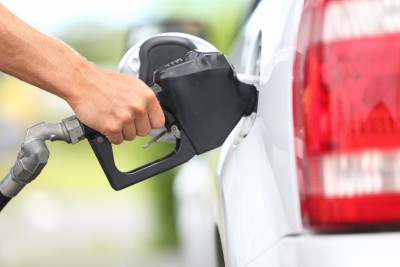Last Updated on November 9, 2023 by Fasting Planet
The moment you start a fast, the benefits aren’t immediate. Your body will need some time before it shifts to burning fat, but exactly how long should you expect to wait?
It takes at least 24 hours for your body to burn through its glucose supply and switch to fat-burning while intermittent fasting. For some fasters, you may have to wait even longer, up to 36 hours.
In today’s post, we’ll discuss more about how and when your body begins using fat for energy and whether there’s any way you can speed up the process a little bit. You’re not going to want to miss it!
What Is Your Body’s Usual Energy Source When Not Fasting?
To understand why it takes the length of time it does for fat-burning to occur, we need to talk about how your body usually functions when you’re in a non-fasted state.
On an average day, the food you ingest becomes glucose, a source of sugar. Higher calorie intake as well as consuming a lot of carbs and sugar can increase the glucose you add to your system. Through a process called glycogenesis, this simple sugar gets converted into glycogen, a usable source of energy that’s stored in your liver.
When you feel tired and you haven’t eaten any food in a while, that’s a sign your energy supply is running a little low. By replenishing your body with food and thus glucose, your energy is restored.
Now, what about what happens during times of calorie restriction, such as during intermittent fasting or if you’re on a ketogenic diet (in which you burn ketone bodies)? Without calories, your body has no glucose, which means no glycogen. That’s okay at first, as your liver has glycogen stores that it can use to keep you fueled up throughout your day.
This leftover glycogen doesn’t last forever though, and when it too is gone, your body has to find another way to keep you energized. Thus, your system switches to burning fat instead. Sometimes, besides just fat, your body may torch muscle proteins, but this happens during prolonged fasts only.
Now your fat acts like glycogen did, keeping your body energized during your fast.
How Long Does It Take for Your Body to Break Down Fat on a Fast?
Burning fat or ketone bodies on a fast, besides providing energy, has other health benefits as well. You may torch more body fat and achieve weight loss, control your blood sugar, and oxidate fatty acids. The question is, how long do you have to wait for all these perks to begin?
Some experts say it only takes 12 hours after the last time you’ve eaten before your body will start using fat for energy during intermittent fasting or a ketogenic diet. If you’re an experienced faster, then that’s the way it could work, but we think that estimate is a bit generous.
More realistically, once you cease eating calories, you’ll be waiting upwards of 24 hours for your body to switch to using fat instead. At most, the process could take 36 hours.
Why such a large window? It all depends on how much glycogen you have stored in your liver. If you’ve never fasted before, then you can expect you have a lot of glucose from food that’s ready to be converted into a usable energy supply. Those who are more experienced at fasting and do so regularly don’t add as much glucose to their systems because they eat in smaller quantities, consume food once per day or once every other day, or they’re on some other sort of fixed schedule.
Can You Speed up Glycogen Burning to Encourage Your Body to Burn Fat Quicker?
Asking someone who’s new to fasting to go on a fast for 36 hours is a pretty tough bargain. You might not be ready for that yet, and that’s okay. Is there any way to burn more body fat without waiting so long for it to happen?
Trying the following methods may accelerate your rate of burning body fat.
Avoid Carbs
If your intermittent fast allows you to eat, such as the alternate-day fast, the 5:2 diet, the 16:8 diet, or the OMAD fast, then you want to choose your meals very carefully. Nutritious, balanced dishes that are natural sources of vitamins, minerals, and amino acids are best.
Besides limiting your calories, you want to make sure you avoid carbs as well. Since carbohydrates supply so much glucose to the body, that just gives you more glycogen to burn through before your system can switch to body fat. You’ll end up hindering your progress without meaning to.
Drink Lots of Water
It’s always smart to drink water while fasting, even if you’re not necessarily on a water fast. H2O provides a sense of satiety that you’re not getting from food, and it also keeps you hydrated. Plus, your kidneys will send out more blood sugar through your urine when you drink water. That could help you start burning through body fat instead of glucose even faster.
Exercise
We just wrote a great post about how exercising can accelerate how much fat you burn by as much as 20 percent when you’re fasting. Your muscles also need more glucose for contraction during physical fitness, so your body uses up your supply faster.
Conclusion
Your body relies on glucose that’s converted into glycogen as your energy supply when you’re in a non-fasted state. Once you begin fasting and that glycogen is gone, your system switches to burning body fat instead. How long this may take varies, with a timeframe of 12 to 36 hours the standard.
By getting some exercise, staying hydrated, and skipping the carbs, you might be able to push your body into fat-burning faster. At the very least, these are good habits to practice while fasting. Best of luck on your fast!

